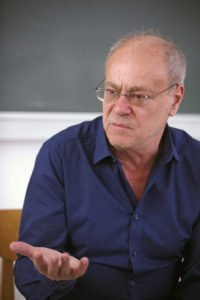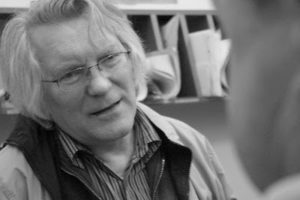Research & Studies


The workshop has been dedicated to selected problems concerning risks and dangers that emerge in science and its wider context. The contributions treated different aspects of the topics, including the phenomenon of hostility to science, the economization of education and scientific research, credulity, and the idea of Bildung. Günther Fleck discussed various aspects of anti-science, especially the refusal of standard scientific research based on ideology and group interests. He described various enemies of science both from the inside and from the outside. György Csepeli explored the psychological features and social determinants of credulity. 
He treated the complex framework in which the role of science changed with the world’s becoming more and more complex and the emergence of new social media. The talk emphasized the loss of authority of elites in general, and of scientific elites in particular, and, consequently, the need for raising an understanding for science in the wider public.
 László Ropolyi gave an overview of different major approaches to knowledge in three larger periods of human history: human knowledge – useful knowledge – free knowledge. The talk elaborated in detail the difference between the knowledge of modernity which corresponds to the commodification of knowledge and contemporary knowledge which could be labeled as the emancipation of knowledge. Mihály Szívós analyzed institutional functioning from a sociological point of view, raising questions about the efficiency of scientific grant applications. The paper highlighted paradoxes in scientific research that can be grasped by oppositions like conservation and innovation, existing experimental capacities and new ideas, and interests inside and outside science. Paul Ertl investigated restrictions that endanger the freedom of scientific research all over the world. He identified four aspects in this regard: political, societal, economic, and emergency restrictions. Relying on Foucault’s approach, th talk proposed new forms of public discussion. Csaba Olay gave an overview of the tradition of Humboldt’s concept of Bildung and his idea of university-based thereupon.
László Ropolyi gave an overview of different major approaches to knowledge in three larger periods of human history: human knowledge – useful knowledge – free knowledge. The talk elaborated in detail the difference between the knowledge of modernity which corresponds to the commodification of knowledge and contemporary knowledge which could be labeled as the emancipation of knowledge. Mihály Szívós analyzed institutional functioning from a sociological point of view, raising questions about the efficiency of scientific grant applications. The paper highlighted paradoxes in scientific research that can be grasped by oppositions like conservation and innovation, existing experimental capacities and new ideas, and interests inside and outside science. Paul Ertl investigated restrictions that endanger the freedom of scientific research all over the world. He identified four aspects in this regard: political, societal, economic, and emergency restrictions. Relying on Foucault’s approach, th talk proposed new forms of public discussion. Csaba Olay gave an overview of the tradition of Humboldt’s concept of Bildung and his idea of university-based thereupon.
© 2017-2023, All Rights Reserved